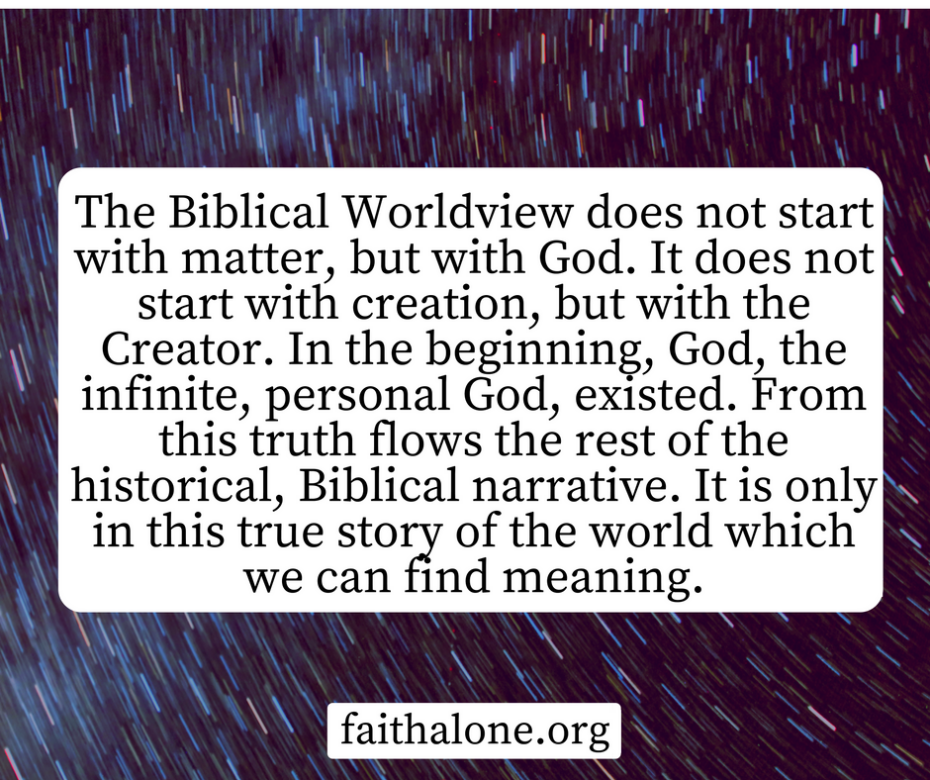by Brad Bell
Worldviews answer fundamental questions about life, death, the universe, who we are, why we are here, etc… Such questions include who am I? how did we get here? why does the world exist? what is the purpose of life? why is there death? Is there life after death?
Worldviews are communicated, passed on, and embodied, in large part, through stories.
Humans use big, all-encompassing stories to answer questions such as those above.
Every culture values and utilizes stories, some fictional and some true, to communicate. Anthropologists call these stories metanarratives.
In essence, a metanarrative is a big, all-encompassing story which provides a framework for understanding and bringing meaning to our present lives. Such big stories are the foundational building blocks and tools of communicating a worldview. They are often referred to as “myths”. Here is how Paul Hiebert explains it:
Unfortunately the word “myth” in popular use has come to mean fiction and fantasy. In its technical, scientific sense, it means the grand narrative in which history is embedded, the narrative by which the history and the stories of human lives are interpreted. In other words, myths are transcendent stories believed to be true that bring cosmic order, coherence, and sense to the seemingly senseless experiences, emotions, and ideas in the everyday world by telling people what is real, eternal, and enduring.
Paul G. Hiebert. Transforming Worldviews: An Anthropological Understanding of How People Change (p. 27). Kindle Edition.
Every story has a starting point. The starting point of a metanarrative or big worldview story answers who or what existed before all else? The answer to this question is what a worldview accepts as ultimate reality, the source from which all else comes and gains purpose.
Materialism is a dominant worldview in the “secular” western world. The big story of materialism begins with some form of matter or stuff, hence mater-ialism. It is held that matter existed and from this the universe, the earth, and life developed.
If matter is the beginning and end of the universe than the questions of existence are answered in terms of such. If matter is ultimate reality, then the accumulation of stuff makes sense, there is nothing after death, emotions are defined as mere chemical reactions, consciousness is reduced to the firing of synapses, and morality has no sustainable basis.
Contrastingly, the Biblical Worldview records a different story with a different beginning. In the opening words of the book which we call Genesis, derived from the Greek word for beginning, we read, “In the beginning, God made the heavens and the earth.”
The Biblical Worldview does not start with matter, but with God. It does not start with creation, but with the Creator. In the beginning, God, the infinite, personal God, existed. From this truth flows the rest of the historical, Biblical narrative. It is only in this true story of the world which we can find meaning.

